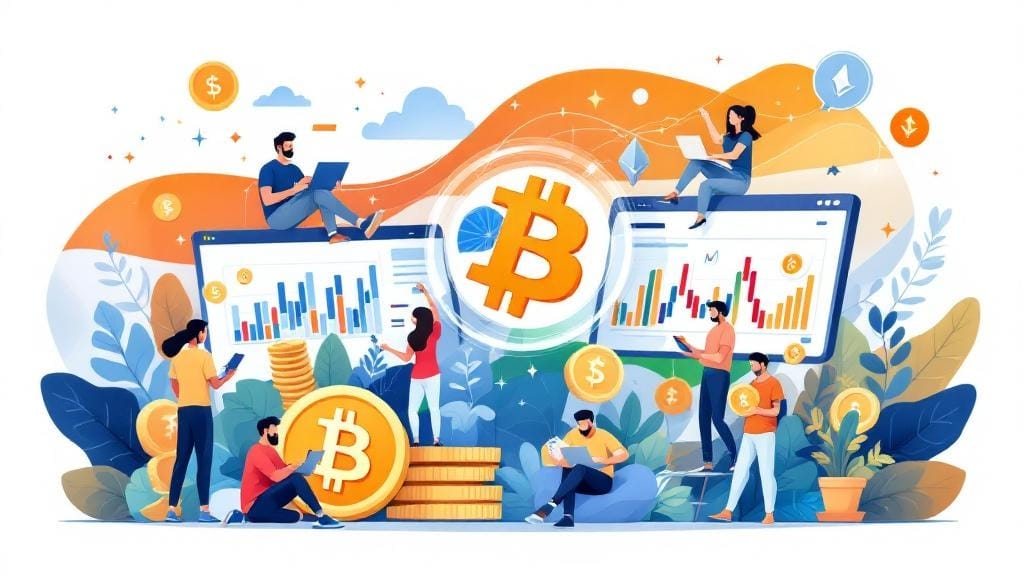Struggling with debt is more common than you think. Whether it’s medical bills, credit card debt, or personal loans, millions of people are searching for ways to get back on track. If you’re in that boat, you’re likely wondering: Where do I even begin?
The good news is — finding debt help agencies is the first step toward financial freedom. But not all agencies are created equal. Some truly care about your future, while others are just looking to profit from your stress.
In this guide, we’ll break down exactly how to choose the best debt relief agency, what red flags to watch out for, and how to take smart steps toward becoming debt-free — without feeling overwhelmed or misled.
🧭 Why Finding Debt Help Agencies Matters
Let’s face it: managing debt alone can feel like trying to climb a mountain in flip-flops. Between juggling bills, dodging collection calls, and trying to keep your credit score intact, it’s tough to make any real progress.
That’s where credit counseling services and debt help agencies come in. The right agency can:
Help you understand your credit report
Create a personalized debt repayment plan
Offer tools for rebuilding credit after debt
Negotiate with creditors to reduce interest or waive fees
Provide emotional support during financial hardship
But again — the keyword is right. Choosing a certified debt advisor can mean the difference between peace of mind and deeper financial trouble.
✅ What Types of Debt Help Agencies Exist?
Before we dive into choosing the best, it’s helpful to understand what kinds of debt help agencies are available:
1. Nonprofit Debt Help Agencies
These focus on financial literacy counseling, offering free or low-cost services like:
Budget planning
Credit education
Debt management plans (DMPs)
Example: National Foundation for Credit Counseling (NFCC)
2. Debt Settlement Service Providers
These try to negotiate with your creditors to settle your debts for less than what you owe. This can impact your credit score, but it may be a good option if you’re far behind on payments.
Caution: Settlement isn’t ideal for everyone. Make sure to talk with a certified debt advisor first.
3. Debt Consolidation Providers
These help roll multiple debts into a single payment — often with a lower interest rate — so it’s easier to manage.
Tip: Check if your chosen agency partners with trusted lenders or offers in-house consolidation options.
4. Credit Counseling Services
These are typically part of nonprofit organizations. They evaluate your finances, offer advice, and connect you to relevant debt relief programs.
🕵️♀️ How to Evaluate Reputable Credit Help Agencies
Let’s say you Google “debt relief agencies near me” — you’ll find dozens of options. But how do you separate trustworthy organizations from the ones trying to make a quick buck?
🔍 1. Check for Accreditation
Look for agencies certified by:
NFCC (National Foundation for Credit Counseling)
FCAA (Financial Counseling Association of America)
This ensures they follow ethical standards and offer legitimate consumer debt assistance services.
🔍 2. Ask About Nonprofit Status
While not always a guarantee of quality, nonprofit debt help agencies often provide more affordable and transparent services.
🔍 3. Verify Credentials
Ensure that you’re working with certified debt advisors who are trained in budgeting, debt repayment strategies, and financial hardship counseling.
🔍 4. Transparent Fees
Reputable agencies clearly disclose:
Any service fees
What’s free vs. what’s paid
Refund policies
If they push you to sign up for a program without explaining costs, walk away.
🔍 5. Look at Online Reviews
Search their name on Google, BBB.org (Better Business Bureau), or Trustpilot. Watch for patterns of complaints, especially about hidden fees or unresponsive counselors.
🚩 Red Flags to Watch Out For
Some debt relief companies promise miracles, but here’s what to avoid:
“Guaranteed” Debt Elimination: No legitimate company can promise to erase your debt.
Upfront Fees: Avoid any agency that asks for large payments before providing help.
No Written Contract: Always get services in writing.
Pressure Tactics: You should never feel rushed or threatened into signing up.
💡 Real-Life Example: Sarah’s Debt-Free Journey
Sarah, a single mom of two from Ohio, was $28,000 in credit card debt after losing her job. She tried juggling minimum payments for over a year but wasn’t making progress.
One day, she searched for “affordable debt solutions near me” and came across a nonprofit credit counseling service. They helped her:
Set up a debt management plan with one low monthly payment
Negotiate lower interest with creditors
Enroll in financial literacy counseling
Within 3 years, Sarah was debt-free and had rebuilt her credit. She now teaches others how to avoid falling into the same trap.
🛠️ Steps to Choose the Best Debt Help Agency
Here’s a quick checklist you can follow when finding debt help agencies:
✅ Step 1: Define Your Debt Problem
Are you dealing with:
High-interest credit card debt?
Collections?
Medical bills?
Loan defaults?
This helps you choose between debt settlement, credit counseling, or consolidation.
✅ Step 2: Look for Local and Online Options
Search “reputable debt relief agencies near me” or check national directories like:
✅ Step 3: Ask Questions
Don’t hesitate to ask:
Are your services nonprofit?
Are your advisors certified?
Do you charge upfront fees?
How will this affect my credit?
✅ Step 4: Compare Multiple Agencies
Gather information from at least 2–3 providers before making a decision.
✅ Step 5: Get Everything in Writing
Always read the fine print. A trustworthy agency will gladly provide documentation.
🧘♂️ Benefits of Working with a Good Debt Agency
Choosing the right partner for your debt journey can:
Lower your monthly payments
Stop harassing collection calls
Improve your financial literacy
Help you pay off credit card debt faster
Give you hope and a clear plan forward
It’s not just about paying off what you owe — it’s about rebuilding your future.
❓FAQs: Finding Debt Help Agencies
1. What is the best type of debt help agency for families?
Look for debt support for families offered by nonprofit credit counseling services. They often include budgeting help, emergency financial advice, and family-oriented planning.
2. Can debt help agencies offer emergency financial help?
Some agencies connect clients to emergency financial help through local charities, government grants, or low-interest loan programs. Always ask during your consultation.
3. Will using a debt relief agency hurt my credit?
It depends. Debt management plans might temporarily lower your score, but long-term you’ll benefit as you reduce debt. Debt settlement can have a larger impact, so it’s best for severe cases.
4. How do I avoid debt collection while seeking help?
By enrolling in a certified debt assistance program, your creditors may stop collection activity. Be sure to communicate your plan with them, and always act fast.
5. Can debt agencies help with legal advice?
Some offer debt-related legal advice or refer you to partner attorneys if needed. This is especially helpful if you’re facing lawsuits or wage garnishment.
6. Is financial literacy counseling included?
Yes — most reputable credit counseling agencies offer financial literacy counseling to help you build smart money habits.
7. How do I become completely debt-free with help from an agency?
Stick to your personalized plan, attend all scheduled counseling sessions, and track your progress monthly. Use resources like budgeting tools, understanding your credit report, and saving strategies to stay on track.
🎯 Final Thoughts: Your Path to a Debt-Free Life Starts Today
Finding debt help agencies isn’t just about reducing numbers on a spreadsheet — it’s about regaining control of your life.
With the right guidance, you can stop feeling trapped and start feeling empowered.
Whether you’re looking for nonprofit debt help agencies, certified debt advisors, or a reputable debt consolidation provider, the key is doing your research and taking the first step with confidence.
Debt doesn’t define you — your actions do.








Comments (0)